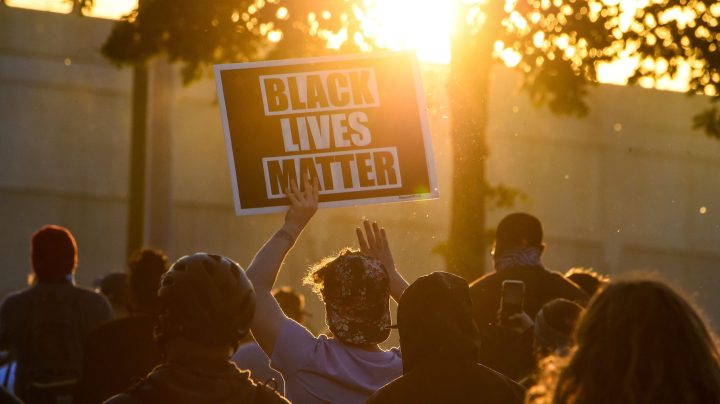
Businesses are quieter on social justice issues as support for Black Lives Matter dips
Businesses are quieter on social justice issues as support for Black Lives Matter dips

It’s been a decade since the hashtag Black Lives Matter first showed up on Twitter and three years since the murder of George Floyd, when about two-thirds of Americans expressed support for the movement, according to Pew Research.
But Pew’s latest polling finds support has since dropped significantly since then — down to just 51%. And that decline is showing up in corporate America.
Companies these days are a lot quieter about social justice issues than they were in 2020, which is exactly what many expected: public support, then backlash, then retreat.
“Many companies are looking at their initiatives and their investment in diversity, equity and inclusion — specifically when it comes to race — and saying, ‘This isn’t quite an area where we want to focus as much anymore,'” said Adia Harvey Wingfield, a professor of sociology at Washington University in St. Louis.
And that can have direct consequences in the workplace, she said.
“For Black workers, in particular, in organizations where they are underrepresented, they often feel excluded and marginalized,” she said. “People in leadership roles, they are more likely to stall out at middle management levels and less likely to climb to the top ranks of organizations.”
But there have been some shifts in the way people think about diversity in the workplace, according to Juliana Horowitz at Pew Research.
“A majority of U.S. workers — 56% — say that focusing on increasing diversity, equity and inclusion at work is mainly a good thing,” she said.
And while relatively few people say it’s very important for them to work in a diverse workplace, “among those who have had experience with DEI measures at work, whether it’s, you know, having organization or policies that ensure fairness and hiring pay or promotion or whether it’s having trainings on DEI, majorities say that those have had a positive impact where they work,” Horowitz added.
When it comes to publicly traded companies, there’s been a significant drop in how often they talk about these issues with investors.
Nick Mazing is the director of research at AlphaSense and checked the transcripts of earnings calls for more than 500 companies over the last few years. More than 190 of those companies mentioned the word “racism” in their calls after George Floyd’s 2020 murder.
“Fast forward to this year, we’ve had only 11 transcripts that mentioned the word ‘racism,'” he said. “What this means is that racism is a topic [that] doesn’t appear anymore in corporate conversations with Wall Street.”
But “what this doesn’t mean is that the initiatives, such as employee resource groups or mentorship programs or racial pay equity audits, and things like that — doesn’t mean that they’re not ongoing,” Mazing added.
If you look instead at proxy statements, which give a broader overview of companies’ long-term plans, Mazing said that many of the initiatives started during the country’s racial reckoning are still alive and well.
There’s a lot happening in the world. Through it all, Marketplace is here for you.
You rely on Marketplace to break down the world’s events and tell you how it affects you in a fact-based, approachable way. We rely on your financial support to keep making that possible.
Your donation today powers the independent journalism that you rely on. For just $5/month, you can help sustain Marketplace so we can keep reporting on the things that matter to you.


















